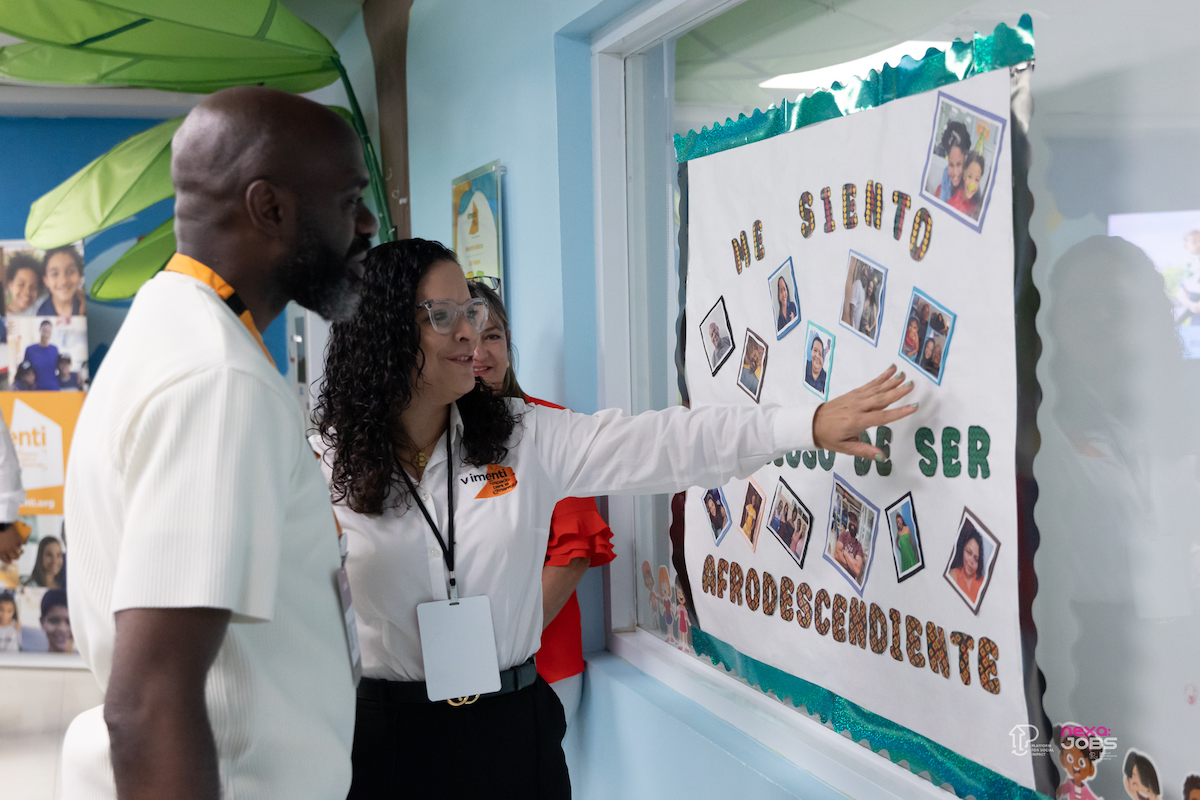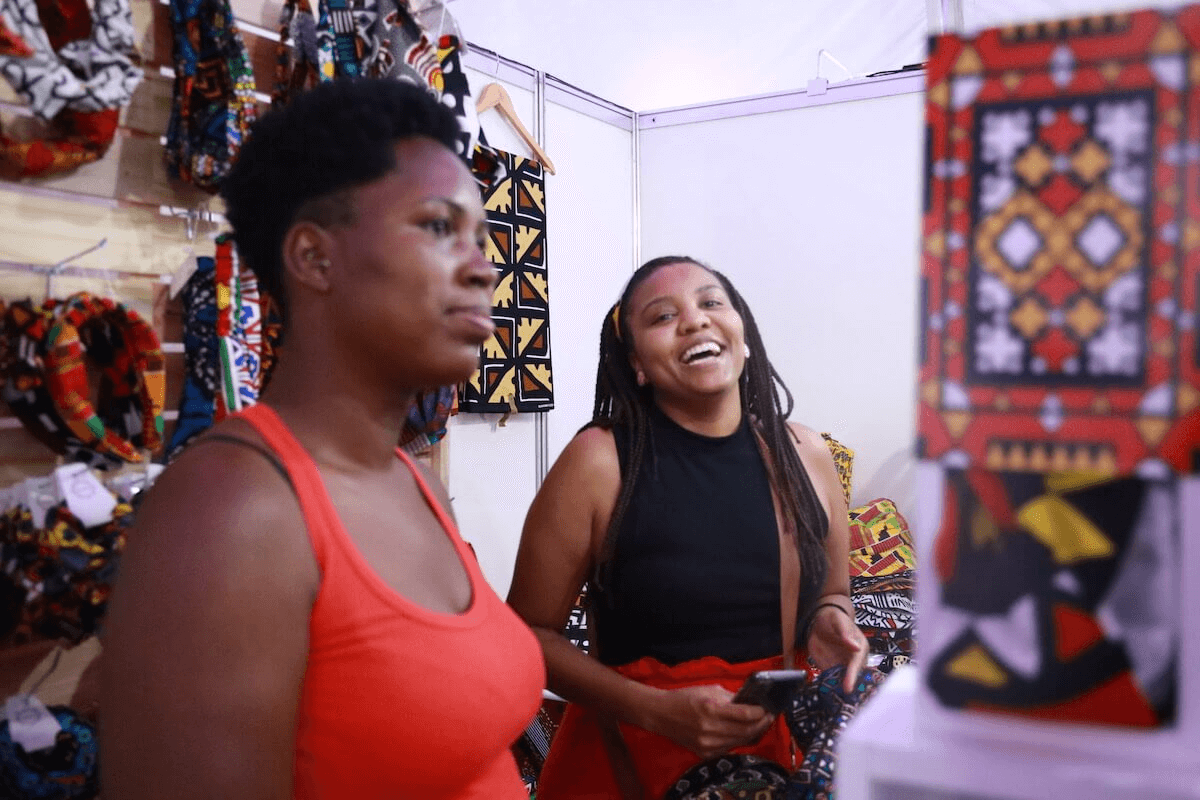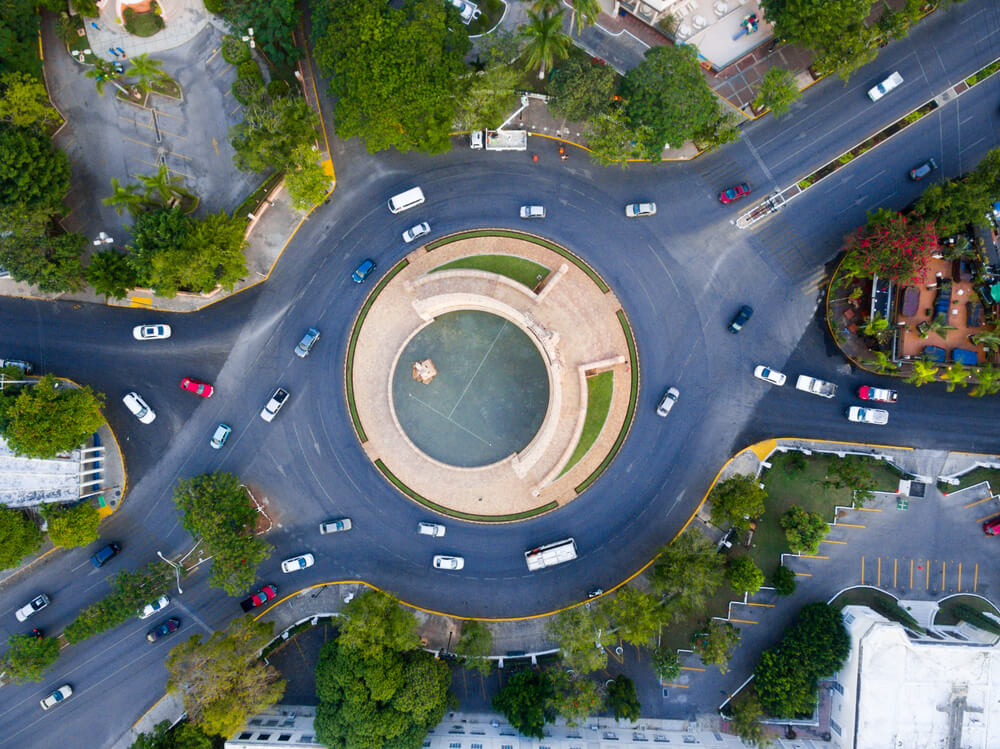Saludos, Agents of Impact!
👋 Welcome to the latest edition of ImpactAlpha Latin America. Earlier this month, I had the opportunity to join Eduardo Carrera (above) in San Juan and get a glimpse at how Puerto Rico might turn disaster recovery into economic and social revival. The Caribbean island is the only former Spanish colony in the Americas that didn’t achieve independence. Neither a nation nor a state, Puerto Rico has been a US territory since 1898; English and Spanish are both official languages.
Multiple disasters in recent years have brought Puerto Rico’s challenges into sharp relief. In this corner of Latin America and the Caribbean, Carrera and his team at Platform for Social Impact are putting children at the center of strategies for social as well as physical infrastructure, offering lessons for impact ecosystems throughout the region. Empecemos! – Dennis Price
In this month’s newsletter:
- Puerto Rico’s inclusive economic revival
- Doing deals in Latin America
- Family offices warm to impact investing
- IMPAQTO’s revenue-based financing
Featured: Inclusive Economy
In Puerto Rico, mobilizing billions for economic mobility with capital from across the spectrum. Puerto Rico has a window in which to turn disaster recovery into economic revival. “We didn’t choose it, but this is our time,” declares Eduardo Carrera, founder of Platform for Social Impact, which aims to steer capital to Puerto Rico’s social infrastructure. In front of hundreds of social innovators and financial engineers in downtown San Juan earlier this month,Carrera unveiled a clock that is counting down to a 10-year deadline for progress. The urgency is a response to the frustration around the Caribbean island’s lingering economic woes years after Hurricane Maria and other disasters. Some $85 billion in US federal aid and recovery funds remain on the sidelines, even as nearly 60% of children live in poverty. Many proponents of a Puerto Rico with good jobs, safe neighborhoods and strong role models, Carrera says “have left intentionality to chance.” At the Platform for Social Impact’s Nexa Summit, Carrera laid out an economic agenda that centers children to end intergenerational poverty. “When children bloom, everybody benefits,” he says.
- Stacking capital. Among the pillars of the strategy: Economic growth, good jobs, upskilling opportunities, supportive policy and sufficient capital. Impact investments that can help unlock the federal funds and bring in commercial capital are key to building a more inclusive economy. Carrera is calling for a surge in credit enhancement and first-loss capital, bridge loans, venture and working capital. “If we are really going to do this at scale, it’s the whole spectrum of finance,” Carrera said, from philanthropy to commercial capital. The PSI team is demonstrating the model in Oasis, a development project in San Juan’s Villa Prades public housing community. To raise $43 million, the team stacked their own seed capital, along with philanthropic dollars, New Markets Tax Credits, low-income investment funds, and a bridge loan. The effort unlocked nearly $30 million in federal aid.
- Good jobs and affordable housing. Platform for Social Impact is bringing in seasoned organizations like Jobs for the Future to build career navigation services, credentials access, and access to startup capital. “This is not just about quality jobs,” said Kristina Francis of Jobs for the Future. “This is about a quality life.” To return many of the hundreds of thousands of abandoned homes back to the market as affordable housing, the Center for Habitat Reconstruction is helping municipalities set up community land banks to acquire homes and finance their rehabilitation. “We do have an affordable housing crisis, but we also have a big market of possible buyers,” said the center’s Edgar Gomez Cintron, who secured anchor funding from Oakland-based PolicyLink for The Center’s loan fund to help rehabilitate housing across the island.
- Deployment infrastructure. Puerto Rico’s underdeveloped capital infrastructure is slowing the deployment of federal funds. USDA’s Max Trujillo says private philanthropy can stand up vehicles to provide the matching funds needed to unlock federal aid. “You match all those things together and you create a new environment,” he said. In San Juan, Joan Larrea of blended finance network Convergence said the next step after stacking capital around specific projects or fundraises is to “put some institutions behind those thoughts.” The funding for the Oasis project demonstrates more than the effective stacking of capital. “What it showcases is that you can, and that’s the hardest thing,” said Platform for Social Impact’s Ramphis Castro. “Now they don’t have to believe. Because they can see.”
- Keep reading, “In Puerto Rico, mobilizing billions for economic mobility with capital from across the spectrum,” by Dennis Price.
Featured: Agents of Impact
These investors are finding opportunities and doing deals in Latin America. How will more investors increase their allocations of capital to Latin American impact funds and ventures scale up? One by one. “We think it’s an incredible opportunity that’s been often overlooked by much of the global impact investment ecosystem,” Sonen Capital Raúl Pomares says in a video interview with ImpactAlpha. Sonen is exposing asset owners to impact opportunities in Latin America with a portfolio of nearly a dozen investments. “More managers are moving into the impact space, which is important for us because we are allocators of capital in the impact themes,” Pomares’ colleague Sandra Sainz explains in her own video interview about making direct and indirect impact investments in Latin America. “We do need more capital in the early stage of the evolution of the companies.” The interviews are part of ImpactAlpha’s series from this year’s FLII in Merída, Mexico. Dig in:
- Carolina Puerta of the FLII on “Uniting Latin America’s social innovators” (video interview). “Latin America is hip right now,” Puerta says. “Latin America is the present and the future.”
- Rogelio de los Santos of Dalus Capital on “Catalyzing capital for climate tech in Latin America” (video interview). Green solutions to bringing hot water to Mexican households represent a huge opportunity in a country where only half the population can afford a gas heater. “We wanted to create a solution from the ground up based on the circumstances that we live with in emerging markets that could be scaled to the masses,” he explains.
- Elena Amato of Community Investment Management on “Financing inclusive fintech in Latin America” (video interview). The institutional asset manager provides credit facilities to financial technology companies that serve the “completely unbanked or poorly banked,” Amato says. “There are a lot of investees that are having trouble in the region about raising debt and not having any access to credit,” she says. “These are the types of businesses we are trying to support.”
- Paulina Macías Romero of Chevez Ruiz Zamarripa on “Bringing legal guidance to Mexico’s social enterprises” (video interview). The law firm helps social entrepreneurs navigate grants, investments and tax issues. The challenge: “How do we help them grow that impact by doing it correctly or in a more sustainable way?” she says.
- Najada Kumbuli of Visa Foundation on “Backing women-led fund managers in Latin America” (video interview). “We’re looking for opportunities, from an innovation perspective, from an impact perspective,” Kumbuli says. “There’s a lot here.”
- Share this post.
Other Agents of Impact:
- The Cartier Women’s Initiative’s latest cohort includes three Latin American entrepreneurs: ELSA’s Marlene Molero Suárez (Peru), Quipu’s Mercedes Bidart (Colombia) and Linus’ Isabela Chusid (Brazil).
- GSG, B Lab, Sistema B, ANDE, Latimpacto, Aliança pelo Impacto and Estímulo are among the G20 for Impact coalition of organizations calling on global leaders to chart a course towards a just and sustainable economic transition at the G20 summit in Rio de Janeiro in November. ICYMI: “The path to growth in Brazil runs through the impact economy (videos)”
Impact Voices: Beyond Philanthropy
Latin American family offices add investing tools to their philanthropic toolkits. The Gerdau Johannpeter family in Brazil has allocated 20% of the family fund to impact investments. In Colombia, the Sesana family has created Asiri, an impact fund manager with investments in renewable energy, financial inclusion and agricultural technology. The Sánchez Navarro family in Mexico has complemented its traditional philanthropic approach with impact investments (Felipe Fernández Sánchez is a co-founder of CO_Capital). “The experiences of these family offices in the region strengthen the hypothesis that impact investing, far from replacing philanthropy, seeks to strengthen and complement it,” Latimpacto’s Manuela Jiménez López writes in a guest post. Three-quarters of Latin American organizations that prioritize impact also sought financial returns on their investments, according to a Latimpacto survey.
- Keep reading, “Latin American family offices add investing tools to their philanthropic toolkits,” by Latimpacto’s Manuela Jiménez López.
How Fundación Bancolombia invests in Colombia’s small businesses for rural economic development. Rural regions are often culturally diverse. Many have limited access to quality education, services, infrastructure and connectivity. Some are isolated by physical geographic features and extreme conditions. In Colombia, the philanthropic arm of Bancolombia Group has since 2002 worked to address the country’s rural-urban divide. “Accelerating impact entrepreneurship offers a potent mechanism for devising innovative solutions to the complex challenges in rural areas,” Fundación Bancolombia’s María Fernanda Díaz writes in a guest post for ImpactAlpha.
- Enterprise acceleration. The foundation’s En-Campo enterprise accelerator trains and invests in rural impact enterprises working in everything from coffee trading to hospitality to renewable energy. En-Campo has supported more than 300 businesses and facilitated investment for 22 enterprises over five years. “There is complexity in transforming rural areas by promoting and nurturing businesses,” writes Díaz. “We believe business acceleration in rural areas is the most effective way to catalyze income generation.”
- Keep reading, “How Fundación Bancolombia invests in Colombia’s small businesses for rural economic development,” by Fundación Bancolombia’s María Fernanda Díaz.
Dealflow: Revenue-Based Finance
IMPAQTO Capital backs Ecuadorian healthy snacks company Cusi (video). Cusi sources quinoa, yucca, green plantains, cocoa and other local plants for its line of healthy snack foods from 60 smallholder farmers and their families in Ecuador’s highlands and in the Amazon. The woman-led company processes the foods into crackers, tortillas and baking ingredients for sale locally and for international export. Cusi’s goal is to support sustainable livelihoods for local farmers and encourage regenerative agriculture, while also encouraging good nutrition. Impact investor IMPAQTO provided a revenue-based loan to the B Corp. to ramp up production at its facility.
- Missing middle. IMPAQTO Capital is the investment arm of Quito-based impact accelerator and ecosystem builder. It provides flexible, revenue-based finance to impact companies that are too small for institutional equity financing or bank debt in the Andean region, including Ecuador, Colombia, Peru and Bolivia. “As a local fund, we know the entrepreneurs well, we know the ecosystem well,” IMPAQTO’s Justin Schwartz told ImpactAlpha in a video interview. “We can be one of the first checks and help those companies have more visibility at the regional and global level.” In February, IMPAQTO extended a loan to Peruvian recycling company Sinba.
- Check it out.
More deal activity:
- Climate tech. Climate tech venture capital firm Sunna Ventures launched with $40 million from Chilean family office WildSur Inversiones… Brazil’s Umagrauemeio raised $3.7 million for its forest surveillance software that can detect and/or predict forest fires.
- Conservation finance. Apple’s nature-based carbon removal fund Restore Fund is partnering with BTG Pactual’s Timberland Investment Group, Symbiosis and Arbaro Advisors to restore degraded pasturelands in South America. The fund has raised more than $280 million… Sustainable tourism in the Galapagos Islands got a boost with Quasar Expeditions’ $14 million loan… Astarte Capital and Silvipar raised $325 million for sustainable forestry in Paraguay.
- Digital services. Ecuadorian fintech Kamina, which collaborates with financial institutions on financial education for their end users, raised a pre-seed round… Brazil’s goFlux inked $6 million in a round led by Capria Ventures to digitize and finance agricultural freight services companies… IDB Lab provided $2 million in debt financing to DoctorOne, a telemedicine service for remote patients in Ecuador.
- Energy transition. Sao Paulo-based hydrogen power producer Green Energy Park secured $30 million in an equity funding round.
- Financial inclusion. Brazil’s Izi raised $800,000 to provide credit for rural producers and agribusiness associations that supply supermarket chains… Citi extended loans to Banco Popular Dominicano and Banco Santa Cruz, to expand working capital lending to small businesses in the Dominican Republic.
- Fund milestones. IDB Lab provided a $3 million anchor investment for iThink VC, an investment firm that supports early stage tech startups in Paraguay and Bolivia… Next Billion raised capital to invest in digital infrastructure and services in Latin America, Asia and Africa.
Get in the Game
💼 Step up
Mercy Corps Ventures is hiring a venture investment associate for Mexico and Central America… Beneficial Returns is hiring a credit analyst (remote)… Alterna has half a dozen jobs available in Guatemala, including its Impact Fellowship… New Ventures seeks a finance manager… American Bird Conservancy is looking for an impact investing officer for migratory bird habitats in Latin America and the Caribbean…Corporacíon Fenalco Solidario seeks a Bogota or Medellin-based sustainability coordinator.
SUBSCRIBER BENEFIT: Visit ImpactAlpha’s Career Hub for more jobs in impact investing and sustainable finance. Contact us for job postings.
🤝 Meet up
Don’t miss these upcoming ImpactAlpha partner events:
- Jun. 4-5: Pro Mujer’s GLII Forum Latam (Buenos Aires). Use code 2C2S53 for a discount.
- Sept. 9-12: Latimpacto’s Impact Minds (Oaxaca)
- Nov.: Alterna’s FLII Central America and the Caribbean (Costa Rica)




